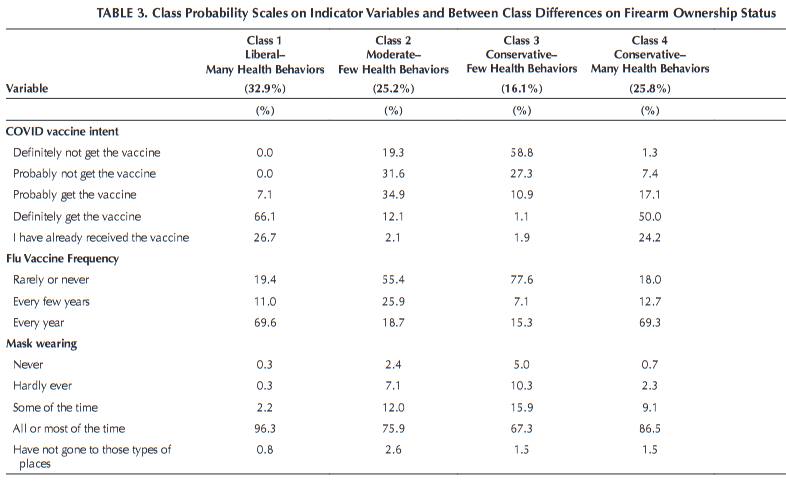In a recent Rutgers study, research shows that those conservative individuals who were more reluctant to take precautions against COVID-19 were more likely to buy firearms in the buying frenzy of 2020.
Further, groups who took more COVID precautions had a higher percentage of first-time gun buyers compared to groups who took fewer measures against illness during the same period. Of these groups, over 60% of gun purchases were to first-time buyers.
The objective of the Rutgers study was to examine “the extent to which political beliefs and public health behaviors cluster together and define distinct groups of individuals and whether those groups differ on firearm purchasing behaviors.”
To accomplish this goal, researchers polled 6,404 U.S. residents from Minnesota, Mississippi, and New Jersey. Participants were asked a series of questions that identified their political leanings, firearm ownership or purchasing, and precautions taken to avoid exposure to COVID-19. COVID precautions include wearing masks, social distancing, and vaccinations.
The results are rather interesting.
The Results
The study was able to break individuals into four groups based on political beliefs and COVID defensive measures. Group one has liberal views and took many steps to avoid illness. Group two has moderate sentiments and took few defensive measures. The third group exhibited conservative views and took few measures against illness. The final group signifies conservative views but took many defensive steps.
After delineating the groups, researchers noted that the groups who took greater precautions against the virus had a higher percentage of first-time gun ownership beginning in 2020.
Michael Anestis, executive director of the New Jersey Gun Violence Research Center at Rutgers, an associate professor at Rutgers School of Public Health, and lead author of the study said, “These findings highlight that different communities view and respond to risk differently and that they trust different sources to provide them with information on how to manage that risk.”
On the other hand, group three (Conservative-Few) was less concerned with the risk of COVID-19. However, this same group also had a firearm purchase percentage.
Anestis made an assumption about this trend, claiming, “These same communities, however, appeared to have concerns about being harmed by other people and, as a result, engaged in behavior they viewed as capable of keeping them safe in that domain: firearm purchasing.”
However, these claims are based on assumptions and previous perceptions dealing with firearm ownership. The motives driving an individual to buy a firearm are beyond the scope of this study.
Read the full article here


